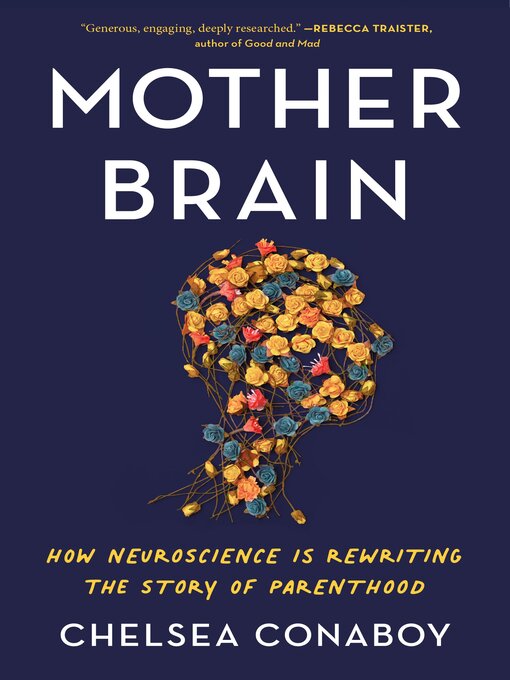Health and science journalist Chelsea Conaboy explodes the concept of "maternal instinct" and tells a new story about what it means to become a parent.
Conaboy expected things to change with the birth of her child. What she didn't expect was how different she would feel. But she would soon discover what was behind this: her changing brain. Though Conaboy was prepared for the endless dirty diapers, the sleepless nights, and the joy of holding her newborn, she did not anticipate this shift in self, as deep as it was disorienting. Mother Brain is a groundbreaking exploration of the parental brain that untangles insidious myths from complicated realities.
New parents undergo major structural and functional brain changes, driven by hormones and the deluge of stimuli a baby provides. These neurobiological changes help all parents—birthing or otherwise—adapt in those intense first days and prepare for a long period of learning how to meet their child's needs. Pregnancy produces such significant changes in brain anatomy that researchers can easily sort those who have had one from those who haven't. And all highly involved parents, no matter their path to parenthood, develop similar caregiving circuitry. Yet this emerging science, which provides key insights into the wide-ranging experience of parenthood, from its larger role in shaping human nature to the intensity of our individual emotions, is mostly absent from the public conversation about parenthood.
The story that exists in the science today is far more meaningful than the idea that mothers spring into being by instinct. Weaving the latest neuroscience and social psychology together with new reporting, Conaboy reveals unexpected upsides, generations of scientific neglect, and a powerful new narrative of parenthood.
- Fiction Available Now
- Nonfiction Available Now
- Most Popular
- New Additions
- New Mysteries
- New Romances
- New Historical Fiction
- New Biographies & Autobiographies
- New Fiction
- New Nonfiction
- Teen Reads
- Libros en Español
- Business & Finance
- See all ebooks collections
- Fiction Available Now
- Nonfiction Available Now
- Most Popular
- New Additions
- New Mysteries
- New Romances
- New Historical Fiction
- New Biographies & Autobiographies
- New Fiction
- New Nonfiction
- Teen Reads
- Libros en Español
- See all audiobooks collections
- Series Starters for Kids and Teens
- Favorite Chapter Book Characters
- Middle School Mysteries
- Feel Good Reads for Teens
- Fairy Tales & Disney
- Young Love
- Belly Laughs
- YA Thrillers
- Country & Small Town Reads for Kids
- Try Manga!
- Bilingual Books for Kids
- Comics & Graphic Novels
- See all juvenile & young adult collections
- All Magazines
- Home & Garden
- Food & Cooking
- News & Politics
- Health & Fitness
- Crafts & Hobbies
- Celebrity & Gossip
- Technology & Gaming
- Culture & Literature
- Science
- Travel & Outdoors
- Women's Lifestyle
- Men's Lifestyle
- See all magazines collections



